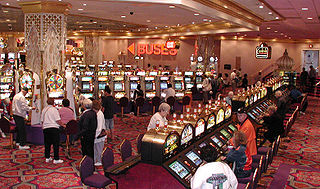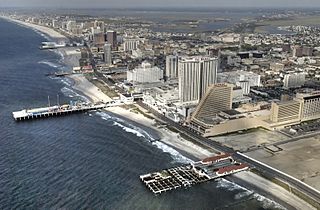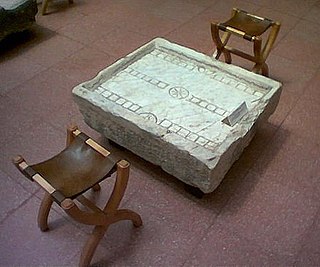Gambling in Norway is illegal for the most part. Norsk Tipping and Norsk Rikstoto are the 2 only companies allowed to offer gambling services to Norwegian citizens. Norsk Tipping offers games like lotteries, sports betting, Keno and several others. Norsk Tipping is wholly state-owned company under the jurisdiction of the Ministry of Culture and Church affairs, [1] with rules about what times of day, and how much money players can bet. As of January 2019 all players have to be over 18 years of age to play all games of Norsk Tipping, including scratch tickets. Norsk Rikstoto is also state-owned and is the only company authorised to arrange horse race betting. [2]
It is generally legal to arrange gambling parties at home, as long as these parties are not organised as a business. Except games offered by Norsk Tipping, all other forms of online gambling are illegal, [3] with the government working towards stopping foreign companies from operating in Norway. In June 2010 the Norwegian Government passed a law that forced all banks in Norway to deny the customers the use of credit and debit cards at land and online casinos all over the world. [4]
Norwegian citizens are also required to declare tax winnings made in another country.
Lottery and gaming legislation
Lotteries and games have always been strictly controlled by the Norwegian government. According to §§ 298 and 299 of the Norwegian Penal Code of 1902, only those games of chance that were offered by special licence holders were legal. Only the authority of a legal statute could grant such permission. Thus, all other games, where the main factor affecting the win was luck, were prohibited. Unauthorized gaming operators were punished.
Three acts that were introduced later in the 20th century, offered some exceptions from the strict ban. These were the 1927 Totalisator Act, the 1992 Gaming Act, and the 1995 Lottery Act. In general, they established the state monopoly in the industry. The 1927 Act provided the basis for giving the Norsk Riksoto Foundation the right to offer horse-race betting services. The supervision of their activity was the responsibility of the Ministry of Agriculture.
The 1992 Gaming Act granted the state owned Norsk Tipping AS exclusive rights to operate the number game Lotto and football betting, with the Ministry of Culture and Church Affairs tasked to supervise them. The 1995 Lottery Act was more comprehensive as it defined and described all forms of lotteries and other games. It also allowed socially oriented organizations to run such games, because the money collected could be used for the benefit of society. [5]
Slots
In the late 1990s, operation of slots fell under the regulation of the Lottery Act 1995. That was a piece of legislation prepared at the beginning of the last decade of the 20th century. While at the dawn of slot technology, that legislation was sufficient, but it didn't foresee significant technological advances and the subsequent social reaction.
In 2001 and 2004, the gross turnover from slot machines was NOK 9 billion and NOK 26 billion. That was a tremendous growth comparing to the NOK 200 million in 1990, when slots accounted for a marginal part of the gross turnover of the gaming and lottery sector. In 2004, slot machines brought 64% of gross turnover and 43% of net turnover.
Being poorly regulated and possessing a serious market potential, slot machines industry grew very fast. The Lottery Act granted licences only to charitable organizations, but it also didn't prohibit private companies to run slots on behalf of such organizations and share the profit. In 2002 the authorities started working towards restricting slots. One of the officially named reasons for limiting the number of slot machines and introducing various strict requirements was that the number of problem gamblers grew almost proportionally to the number of slot machines. The draft legislation was introduced in March 2003, but the interested commercial companies attempted to legally challenge the new rules. [5]
Eventually, in July 2007, slot machines were banned in Norway. In 2009 IVTs (interactive video terminals) were introduced. The players required to have a special card to play on them. [6]

A bookmaker, bookie, or turf accountant is an organization or a person that accepts and pays out bets on sporting and other events at agreed-upon odds.

Gambling in Macau has been legal since the 1850s when the Portuguese government legalised the activity in the autonomous colony. Since then, Macau has become known worldwide as the "Gambling capital of the world". It is the only place in China where casino gambling is legal.
Online casinos, also known as virtual casinos or Internet casinos, are online versions of traditional casinos. Online casinos enable gamblers to play and wager on casino games through the Internet. It is a prolific form of online gambling.
A video lottery terminal (VLT), also sometimes known as a video gaming terminal (VGT), video slots, or the video lottery, is a type of electronic gambling machine. They are typically operated by a region's lottery, and situated at licensed establishments such as bars and restaurants.
Online gambling is any kind of gambling conducted on the internet. This includes virtual poker, casinos, and sports betting. The first online gambling venue opened to the general public was ticketing for the Liechtenstein International Lottery in October 1994. Today, the market is worth around $40 billion globally each year, according to various estimates.
Gambling in the United Kingdom is regulated by the Gambling Commission on behalf of the government's Department for Digital, Culture, Media and Sport (DCMS) under the Gambling Act 2005. This Act of Parliament significantly updated the UK's gambling laws, including the introduction of a new structure of protections for children and vulnerable adults, as well as bringing the burgeoning Internet gaming sector within British regulation for the first time.

In the United States, gambling is subject to a variety of legal restrictions. In 2008, gambling activities generated gross revenues of $92.27 billion in the United States.

Norsk Tipping is a Norwegian gambling company headquartered in Hamar, Norway. Founded in 1948, Norsk Tipping is owned by the Norwegian government and administered by the Norwegian Ministry of Culture. The company offers a wide range of lottery, sports and instant games in the Norwegian market. Since its foundation, the profit from the company’s operations have been channelled back to the Norwegian sport and cultural sectors.
Mobile gambling refers to playing games of chance or skill for money by using a remote device such as a tablet computer, smartphone or a mobile phone with a wireless internet connection. Over a hundred mobile casinos were operating as of December 2013, with most of the big casino operators in gambling now providing a mobile platform for their player base.

The British Columbia Lottery Corporation is a Canadian Crown corporation that manages all legal gambling products in British Columbia including lottery tickets, casinos and online gambling. It is based in Kamloops, with a secondary office in Vancouver. It consists of three business units: Lottery, Casino and eGaming. Its annual revenues exceed CDN $1.6 billion. It has 890 direct employees. Its service providers, who run casinos on its behalf under contract, have an additional 8,300 employees.
Gambling in India varies by state; states in India are entitled to formulate their own laws for gambling activities. Some states like Goa have legalised casinos. Common gambling activities like organized betting are restricted except for selective categories including lottery and horse racing.
Gambling in South Africa has been heavily restricted since 1673, with South Africa's Gambling Act of 1965 officially banning all forms of gambling except betting on horse racing which existed as a sporting activity.
Gambling in Pennsylvania includes casino gambling, the Pennsylvania Lottery, horse racing, bingo, and small games of chance conducted by nonprofit organizations and taverns under limited circumstances. Although casino gaming has been legal for less than two decades, Pennsylvania is second only to Nevada in commercial casino revenues.

The Norsk Rikstoto is a foundation that supervises parimutuel betting on animal racing in Norway.

Gambling in New Jersey includes casino gambling in Atlantic City, the New Jersey Lottery, horse racing, off-track betting, charity gambling, amusement games, and social gambling. New Jersey's gambling laws are among the least restrictive in the United States. In 2013, the state began to allow in-state online gambling. Five years later, the state won a lawsuit that dismantled Nevada's monopoly on legal sports betting.

Gambling in Italy has existed for centuries and has taken on many forms. Its dates back to the days of the Roman Empire, when the predecessor of the modern game of backgammon, Ludus Duodecim Scriptorum, became popular among Roman legionnaires. It is also due to them that the game came to other European countries.
Gambling in Estonia is relatively young. While Estonia was a part of the USSR, all types of gambling activities were banned. Despite the prohibition, illegal casinos still functioned, but the real history of gambling started in 1994-1995 when the first Lottery Act of 1994 and the first Gambling Act of 1995 came into power. As the capitol, Tallinn has more casinos than any other Estonian town. As of September 2010, there were 33 casinos in Tallinn. That's 3 times less than in 2008, when 91 gambling venues operated in this city. According to experts, the main reasons for such decrease were the consequences of the crisis and the adoption of the new gambling law in 2008. The legal age for playing at casinos is 21.
Legal forms of gambling in the U.S. state of Massachusetts include casinos, sports betting, parimutuel wagering on horse racing, the Massachusetts Lottery, and charitable gaming. The Massachusetts Gaming Commission regulates commercial operations under state jurisdiction.
Legal forms of gambling in the U.S. state of Connecticut include two Indian casinos, parimutuel wagering, charitable gaming, the Connecticut Lottery, and sports betting.
Gambling in Nigeria is not well regulated. Although there is a gambling law in place, many illegal casinos operate in the country. The legal land-based casinos are located in the two largest cities. The biggest casino is The Federal Palace Hotel in Lagos. Nigerian law focuses on activities to reduce money laundering and illegal gambling.







